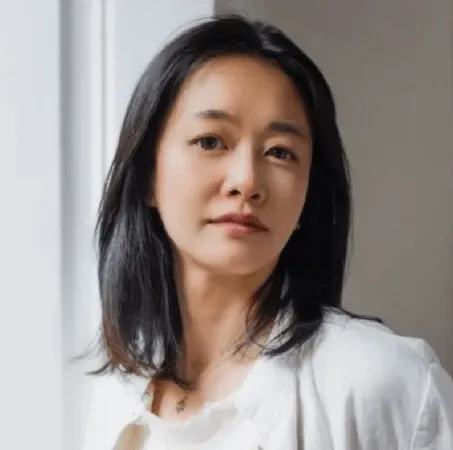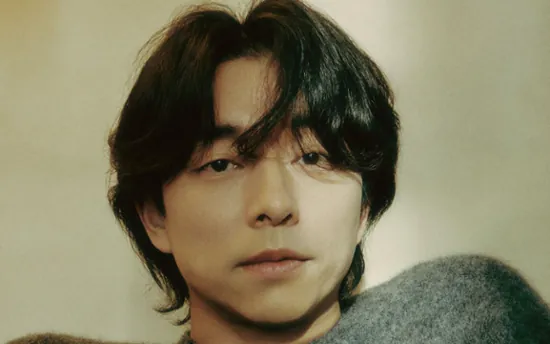
From 'Genius Girl' to Trailblazer: South Korean PhD Unveils a $100 Million AI Fund
2024-12-20
Author: Sarah
In a remarkable journey that seems straight out of a television drama, Songyee Yoon, nicknamed the "Genius Girl," has transitioned from an extraordinary student at a South Korean university to a powerhouse in the tech industry. During her university days, amidst the lively chaos of student life, Yoon was often found tirelessly working on a supercomputer late into the night, driven by an insatiable curiosity that led her to wake at 2 or 3 am just to check on her programming results.
Her distinctive dedication and intellect garnered attention, inspiring a writer to create a character based on her, known as "Genius Girl" in the hit Korean TV show, "KAIST." However, that was just the beginning of her astonishing trajectory.
Rising to prominence, Yoon earned her PhD from the prestigious Massachusetts Institute of Technology (MIT) and quickly climbed the ranks to become president of NCSoft, a leading South Korean video game developer. Now, she stands at the forefront of a new venture—announcing the launch of Principle Venture Partners (PVP), a robust $100 million fund aimed at nurturing the next wave of artificial intelligence startups. The fund is set to provide early-stage investments ranging from $100,000 to several million dollars, and it has already made its mark by backing six innovative startups, including the cutting-edge model maker, Liquid AI.
Yoon's partnerships within the fund are nothing short of impressive, featuring a lineup of distinguished figures from AI academia, including Daniela Rus, a top researcher from MIT; Dawn Song, a MacArthur Fellow noted for her work in computer security; and Jeremy Nixon, the founder of AGI House—a buzzing community for aspiring AI entrepreneurs. This star-studded team of academics gives PVP a unique competitive edge in evaluating investment opportunities.
Yoon asserts that having a diverse array of advisors can be crucial for founders, as it brings various perspectives that can drive innovation. She emphasizes that PVP’s team has a rich understanding of AI's evolution and its future trajectory, positioning them well to identify and support the next generation of AI-native companies—those designed from the ground up to leverage AI technology.
“AI is poised to revolutionize many sectors,” Yoon explains, with a particular focus on how it can transform the insurance industry. She highlights possibilities such as using AI to enhance clarity for consumers regarding their insurance plans and enabling the underwriting of autonomous robotics.
However, Yoon is also acutely aware of the ethical challenges posed by AI, particularly concerning issues of cultural representation and accessibility. Last year, she wrote about the dangers of cultural colonialism in AI, noting that a significant portion of the global population lacks even basic internet access, raising concerns about whose voices are represented in AI training data. "If the majority of data is drawn from a limited perspective, how can we expect AI to truly understand diverse viewpoints?" she questions.
Yoon believes in the importance of continuous dialogue and greater representation in the technology industry to tackle these complex issues. Despite PVP being composed of three female partners, she does not label it strictly as a "female fund." Nevertheless, she recognizes that many female entrepreneurs are drawn to their venture, valuing the understanding and support of a team that appreciates their unique strengths.
In a world where the next unicorn could emerge from unexpected places, Yoon’s story serves as a reminder that innovation is not just about technology; it's about the diverse perspectives and backgrounds that shape it. As the AI landscape rapidly evolves, the implications of Yoon's work will likely extend far beyond the boardroom, inspiring the next generation of innovators around the globe.




 Brasil (PT)
Brasil (PT)
 Canada (EN)
Canada (EN)
 Chile (ES)
Chile (ES)
 España (ES)
España (ES)
 France (FR)
France (FR)
 Hong Kong (EN)
Hong Kong (EN)
 Italia (IT)
Italia (IT)
 日本 (JA)
日本 (JA)
 Magyarország (HU)
Magyarország (HU)
 Norge (NO)
Norge (NO)
 Polska (PL)
Polska (PL)
 Schweiz (DE)
Schweiz (DE)
 Singapore (EN)
Singapore (EN)
 Sverige (SV)
Sverige (SV)
 Suomi (FI)
Suomi (FI)
 Türkiye (TR)
Türkiye (TR)